Homepage Slideshow
The introduction of genetically modified rice species in the following decades almost swept away traditional rice seeds as well as other crops. Heavy use of chemicals and fertilizers also led to local species of fish and frogs becoming endangered. According to a local consultant, “Boholano farmers were forced into a cycle of dependency on chemical fertilizers, pesticides and other expensive inputs, which eroded soil fertility, damaged ground water and human health, and eventually decreased yields.”
It was in response to these issues in the 1980s that the sustainable organic farming movement started gaining momentum in Bohol. The Department of Agriculture began providing training and seeds for organic agriculture; NGOs and community-groups began initiating projects to promote organic farming in Bohol. In 1989, a group of about 40 farmers in the Municipality of Carmen decided they could promote, finance, and help each other to pursue and shift to organic farming.
A group of people is all it takes
The Carmen Samahang Nayon Multipurpose Cooperative (CSNMC) was officially registered in 1990 and now has about 2000 organic farmer members, who come from within and outside the municipality. CSNMC offers affordable lending rates to its members. It also promotes organic farming, conducts training, and teaches farmers who wish to shift from conventional agriculture with little to no cost at all.
The Carmen Samahang Nayon Multipurpose Cooperative (CSNMC) was officially registered in 1990 and now has about 2000 organic farmer members, who come from within and outside the municipality. CSNMC offers affordable lending rates to its members. It also promotes organic farming, conducts training, and teaches farmers who wish to shift from conventional agriculture with little to no cost at all.
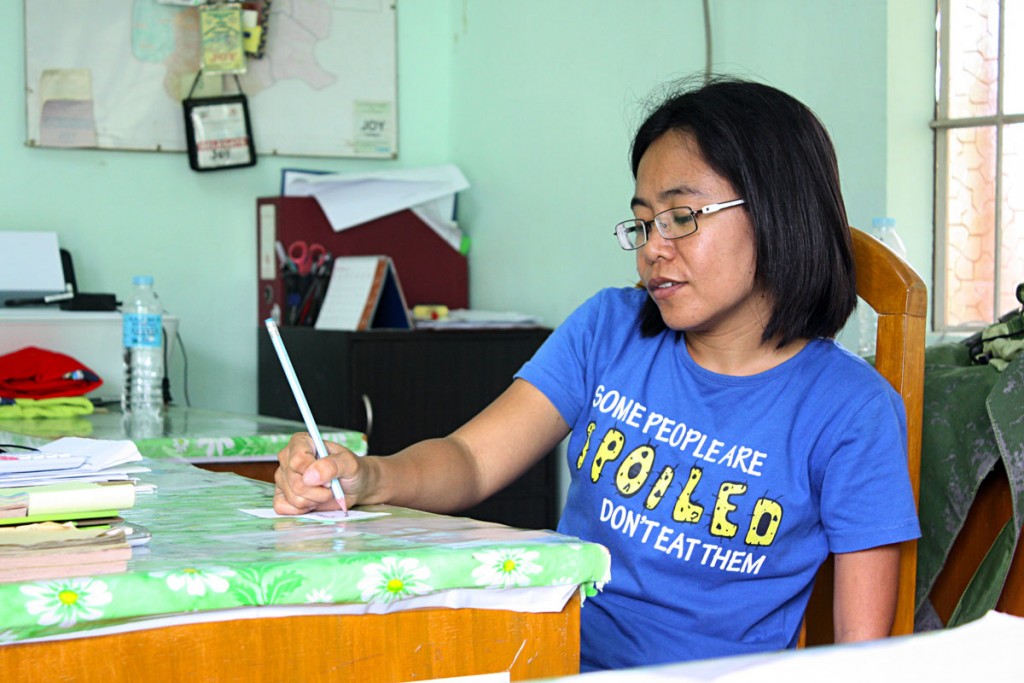
Ms. Joy Ramirez, Secretary of the Carmen Samahang Nayon Multipurpose Cooperative, Province of Bohol
For Ms. Joy Ramirez, CSNMC Secretary, being an organic agriculture advocate is a rewarding endeavor. She recalls farmers coming in to the Coop office and asking about organic farming, “It was very difficult when we were just starting, farmers would really have no idea what organic farming is. Now, it is easier. They already know; it’s just a matter of showing them the tools and proper way to do it.”
The Coop office has a training facility next to it where they teach farmers about organic agricultural practices. Topics include: using organic fertilizer, tending to the crops, techniques to avoid pests, as well as how shifting to organic farming is not only healthier, but also profitable and sustainable.
Supporting local champions
Given CSNMC’s position as a pillar in the community and advocate of profitable and sustainable agriculture, the Government of Canada and the Philippines through Department of the Interior and Local Government (DILG), extended support to the group. From 2009 to 2011, the Local Government Support Program for Local Economic Development (LGSP-LED) trained CSNMC staff in accounting and business planning.
“The training was really very helpful,” said Ms. Ramirez. It helped the Coop streamline their processes, pricing, and packaging. With LGSP-LED support, CSNMC installed a Bohol Internal Guarantee System (BIGS), helping farmers comply with quality standards for organic products. A new rice mill was procured through a proposal the Coop developed with LGSP-LED’s support. “I’m making a business plan exclusively for the rice mill operations of the Coop,” said Ms. Ramirez, wanting to ensure that its operation is sustainable as it is profitable as well.
Experts, hired by LGSP-LED, plotted the value-chain of organic rice within the Bohol Cluster. Through their research, they linked CSNMC to the Center for Agribusiness and Sustainable Agriculture (CASA), a training center which could provide the Coop a consistent supply of new organic farmers, and a Vermiculture Production Network to provide organic fertilizer to farmers. To raise awareness and also serve as a marketing vehicle, Balay Sa Humay houses a rice museum that educates tourists and visitors on Bohol farming practices.
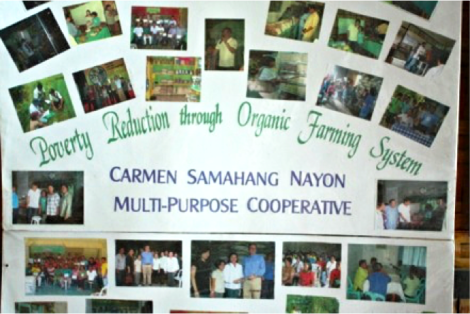
Photos of CSNMC in Trainings part of PROMOTE-RICE.
Challenges continue
The organic agriculture movement in Bohol has its challenges but continues to press on. CSNMC has grown exponentially; however they are still unable to meet the ever-growing demands of the market. “We have not made a delivery to the BQ Mall (local supermarket) in 3 weeks,” said Ms. Ramirez. Orders from the local and immediate municipalities are more than the Coop can supply. Orders come in from outside Bohol as well. Ms. Ramirez also shared that some of the Coop staff that were trained at the facility were reassigned and that it has been a while since CASA has provided any new organic farmers.
Still, Ms. Ramirez, the Coop, and the organic farmers of Bohol are steadfast. With their own training facilities, local champions, and a new rice mill that is expected to more than double their production capacity, the organic agriculture movement in Bohol is bright.#
Events
-
Workshop on Workforce Development
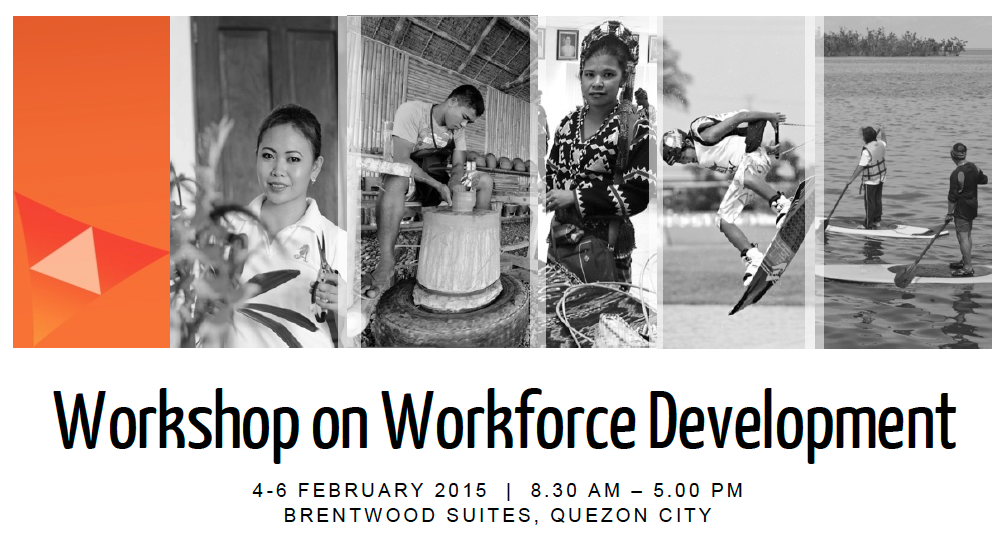
The Department of the Interior and Local Government (DILG) continues to support local governments as front liners of inclusive growth by advocating for LGUs to become more business-friendly and competitive.
Part of this process is ensuring the local supply of workforce meets—in number and competencies—the demand of priority industries and emerging investors, leading ultimately to more jobs for a larger number of Filipinos.
In January 2015, through its Canada-backed program, the Local Governance Support Program for Local Economic Development (LGSP-LED), DILG helped eleven (11) provinces complete nine (9) tourism circuit plans within the priority Tourism Development Areas identified by the national government.
-
Coaching on BFCL for LEIPOs
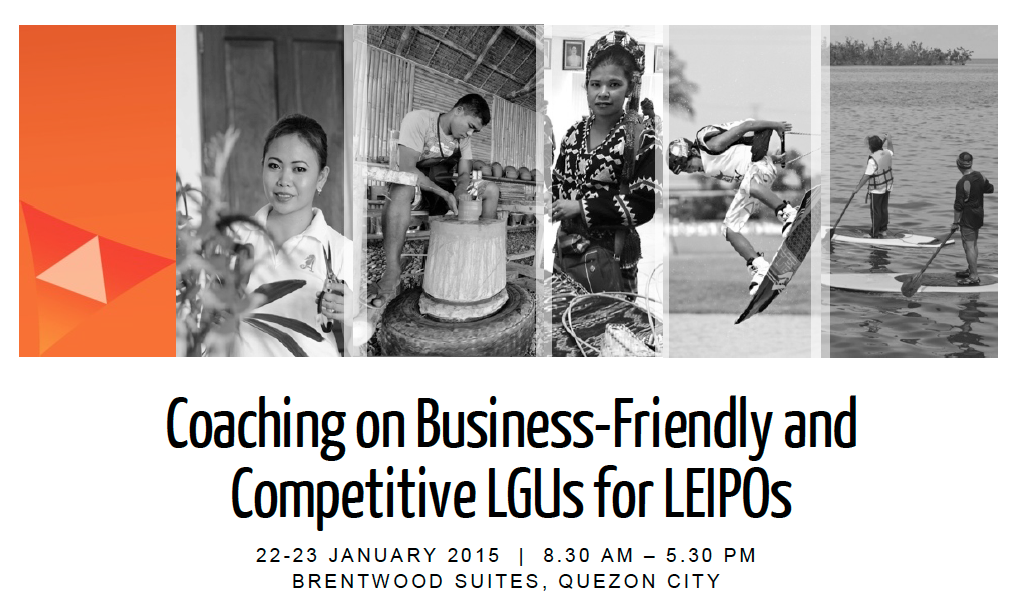
The Department of the Interior and Local Government (DILG) continues to intensify its support for local governments to be front liners of inclusive growth by advocating for LGUs to become more business-friendly and competitive.Through its Canada-backed program, the Local Governance Support Program for Local Economic Development (LGSP-LED), DILG is conducting a coaching session for Local Economic and Investment Promotion Officers (LEIPOs) from 18 provinces: Palawan; Albay; Sorsogon; Aklan; Antique; Iloilo; Negros Occidental; Negros Oriental; Siquijor; Cebu; Davao del Norte; Pangasinan; Guimaras; Bohol; Zamboanga del Norte; Leyte; South Cotabato; and, Sultan Kudarat.
-
Building Competitive LGUs
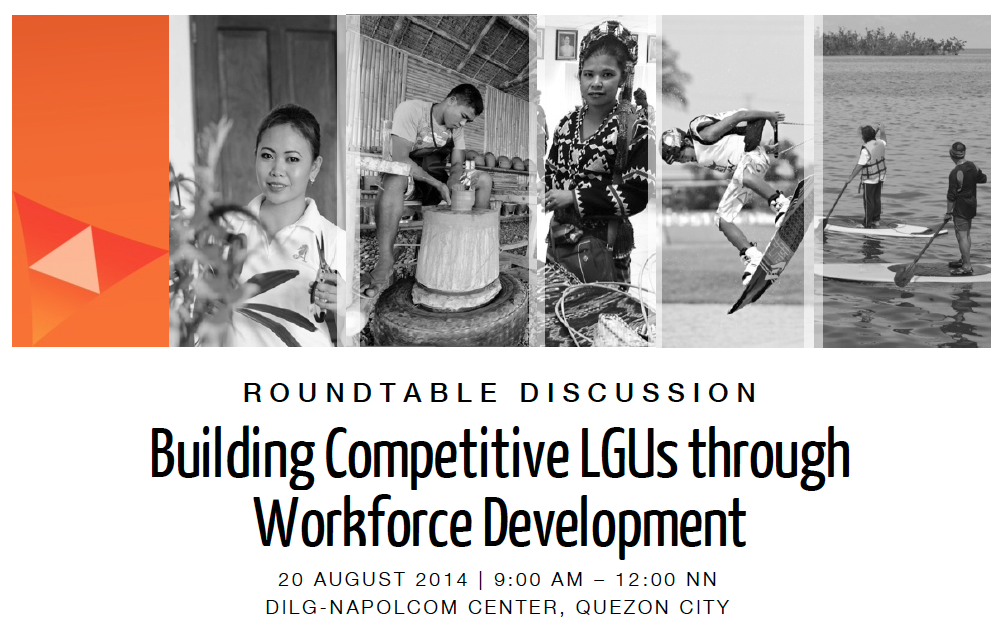
High unemployment rates can be attributed to a mismatch in the worker competencies that institutions produce as compared to the needs of a particular industry. This proves to be true in the experience of the Department of the Interior and Local Government (DILG) through its Local Governance Support Program for Local Economic Development (LGSP-LED).
Success Stories
-
Tourism helps rebuild Northern Iloilo
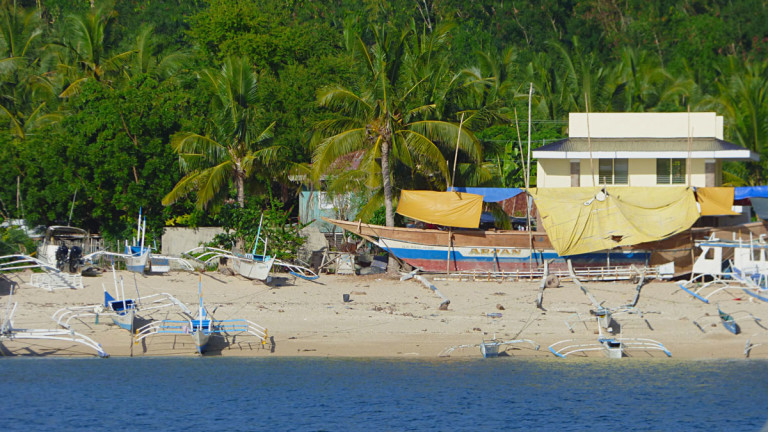
Isla Gigantes is the farthest island off the northern coast of the province of Iloilo, Philippines. It is one of the 33 islands in the islands in the Municipality of Carles where 97% of barangays (villages) are coastal. There are about a thousand households settled here with fishing as their primary source of livelihood. Out of the 33 islands in the municipality, Isla Gigantes might be the one most visited by tourists.
This was not always the case. Isla Gigantes only gained popularity after it suffered through supertyphoon Yolanda in November 2013.
“Dinala ako ng hangin papunta sa dagat,” recalls Elmar Tuma-on, a 42-year-old local resident. I was swept away, towards the shore.
-
Coop helps Boholano farmers keep up with organic rice demands
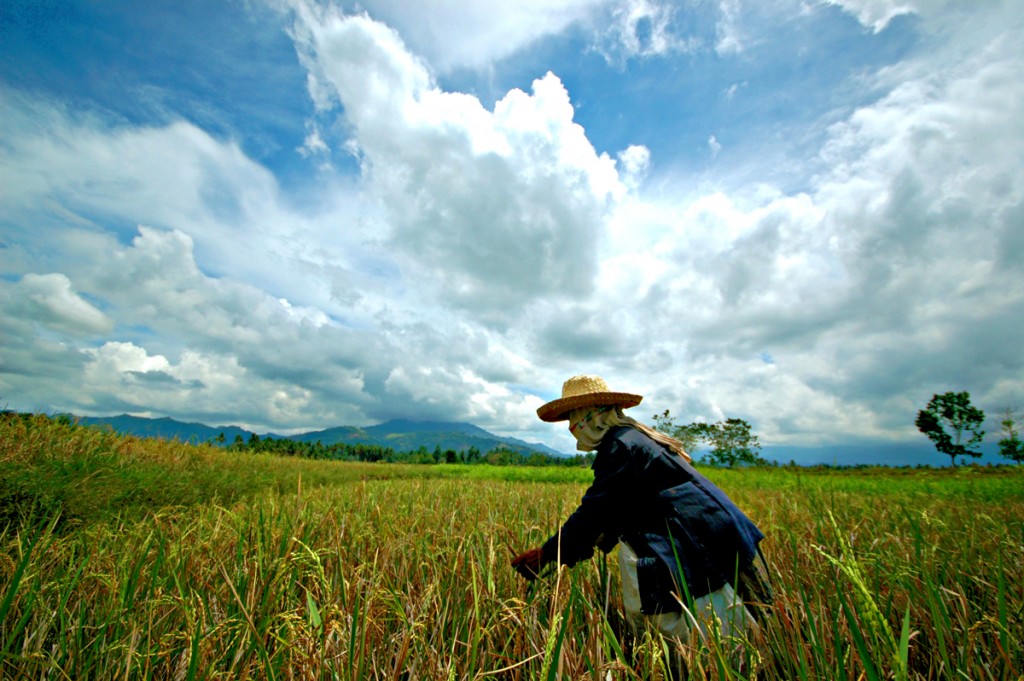
Rice Harvest in the Philippines
Agriculture is the main livelihood in the Province of Bohol – an island in the heart of the Philippines.
During the Green Revolution in the 1960s, government support to increase agricultural production in the Philippines was plentiful and forceful. With this support and the introduction of new varieties and technology, farmers were able to double agricultural yields. It was in this context that the Philippines became a rice-exporting country.
-
Hablon Goes Global

SOLAR LIVING, a Canadian company that promotes solar energy for both residential and commercial use, opened its showroom at SM City Iloilo on December 18, 2015.
Owned by Malaysian-Canadian businessman Alan Yong, Solar Living is the first to respond to a 2014 business matching activity organized by the Local Governance Support Program for Local Economic Development (LGSP-LED).






